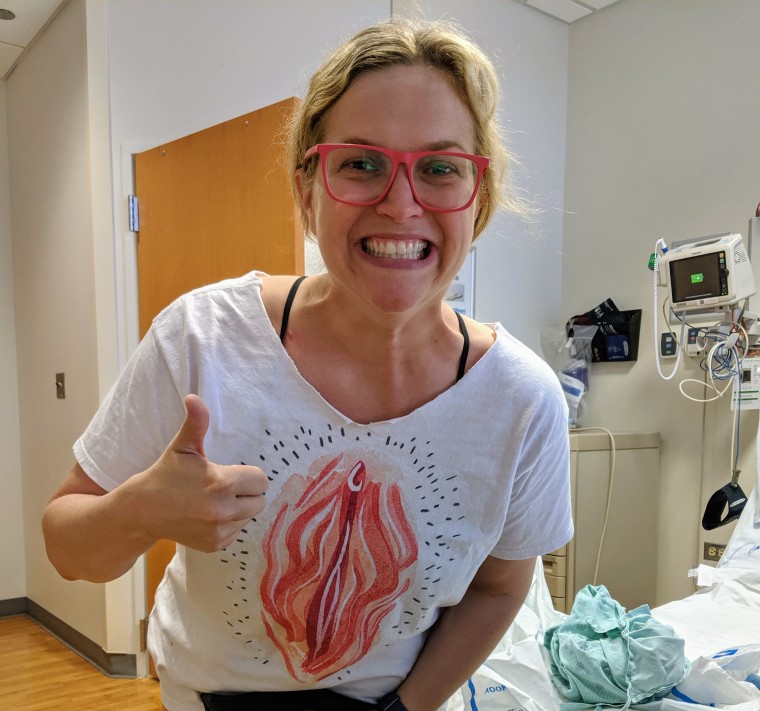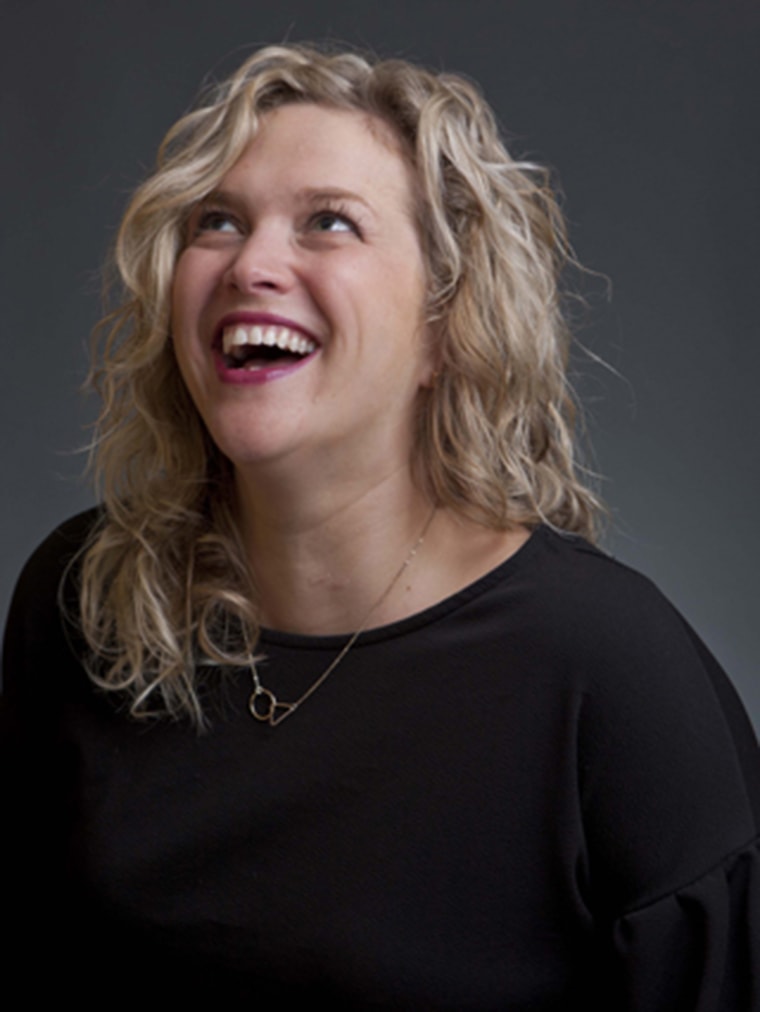After giving birth to her daughter six years ago, Mary Ellen Ball felt an unusual itching and pain around her pelvic area that didn't seem to go away. At first, she thought it was a yeast infection and tried over-the-counter treatments. But they didn’t work.
Frustrated with the constant irritation, she learned about pelvic floor therapy and started sessions in 2019, hoping for some relief. The physical therapist didn’t notice anything wrong with her muscle function, though, so she suggested Ball request a Pap smear, even though she wasn't due for one.

“I’ve always had normal Pap smears,” the 39-year-old nonprofit CEO from Evanston, Illinois told TODAY. “This one came back really bad.”
Cells from her cervix tested positive for a strain of HPV, human papillomavirus, that causes cancer. Her doctor wanted to perform a procedure to scrape the cells off the cervix.
“That's actually a really great treatment and they have a really great success rate with that,” Ball said. “I literally I thought I was done with HPV.”
After the procedure called a loop electrosurgical excision, or LEEP, Ball started bleeding. She visited the emergency room, where doctors recommended that she follow up with her gynecologist. At that visit, Ball asked the doctor to look at a spot on her vulva, near her perineum, that still itched. The doctor thought it looked normal, but noticed a tiny spot.
“She even said ‘You know what? This has been bothering you, let's just do a quick biopsy,’” Ball recalled. “Thank God she did a biopsy because to this day she's still shocked that it came back so serious.”
The nagging itch and annoying pain was more than just a nuisance; Ball had precancerous cells on her vulva caused by HPV, which can cause cancer of the cervix, penis, vulva and anus.
“It was very scary,” she said. “(We) didn’t know the extent of how much it had spread. If it was all over or just in this spot.”

In September 2019, she visited an oncologist and underwent laser ablation surgery to remove the cells. Healing from the procedure has been tough both emotionally and physically. When she first removed the bandages, she saw a large singed wound covering much of her labia.
“I didn't know what my labia really looked like until after I got (this surgery),” she said. “When you first look at it, you’re like ‘Ok I guess it's not so bad’ and then you pull back to the next folds and it's like a whole lot of black.”
Thinking about how her body looked following surgery still feels overwhelming.
“For a long time I could just cry thinking about it. It was awful,” she said.
Although it looks better, she still uses a cream to boost her immune system, which helps to fight off the precancerous cells. But it’s painful and makes sexual activity almost impossible.
Healing through talking
When the HPV vaccine first came out it was only recommended for girls to up to age 26. Now, people up to 45 can get it. Ball was told she was too old for the vaccine and it wouldn't work for her. But she hopes others consider getting it to protect themselves from HPV and the cancers it causes.
“It’s important for both boys and girls,” Ball said. “We need to talk about this …this is not hyperbole. This is true life or death for people.”
She also wants more people to talk openly about their bodies.
“I hope that people can talk about vaginal and vulva health like they talk about an ear infection — with no shame,” she said. "I would love people to take control over their own bodies.”
Although it might feel embarrassing for some to talk about labias or vulvas, Ball learned first-hand why it's essential to be mindful of the entire body.
“It’s really important for preventative health care to make sure you know how everything looks and feels so then (you) would notice if something changed,” she said.
Ball shared her story on her website and the private Facebook group Pantsuit Nation, where many women confided they had similar stories. She said connecting with others makes it easier for her to face a lifetime of cancer screening and testing.
“Healing for me has been talking about it," she said. "Something that helped me is knowing that my pain is literally helping thousands of people."
